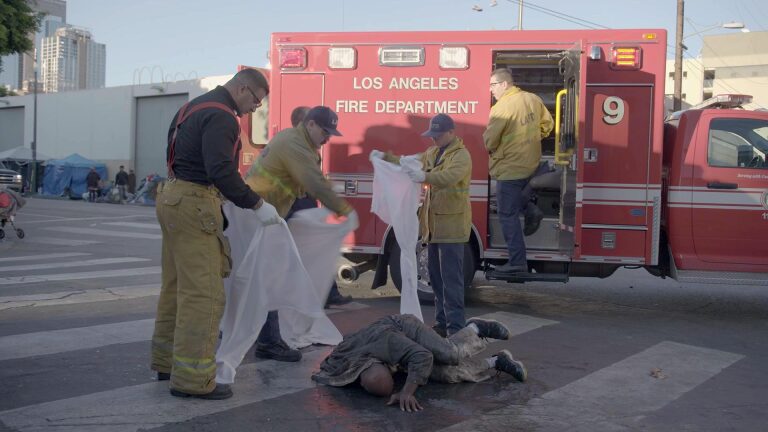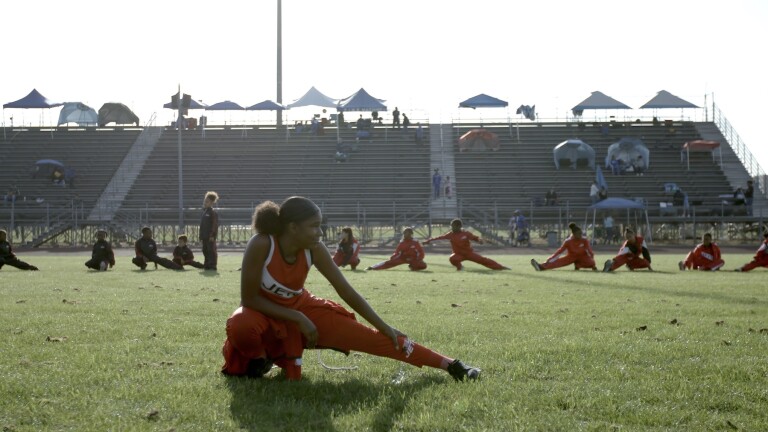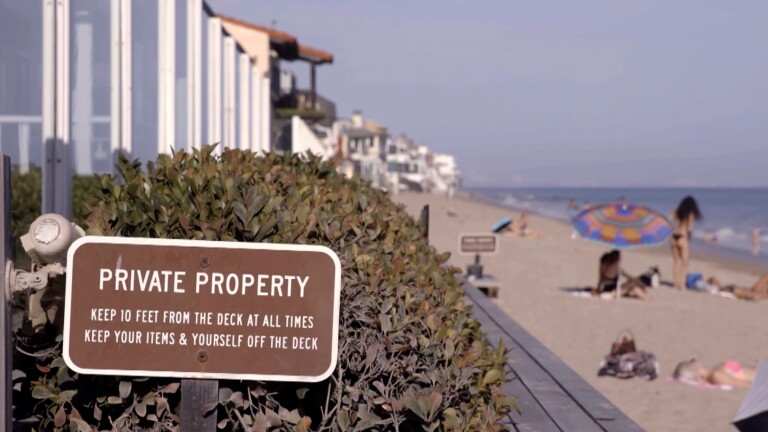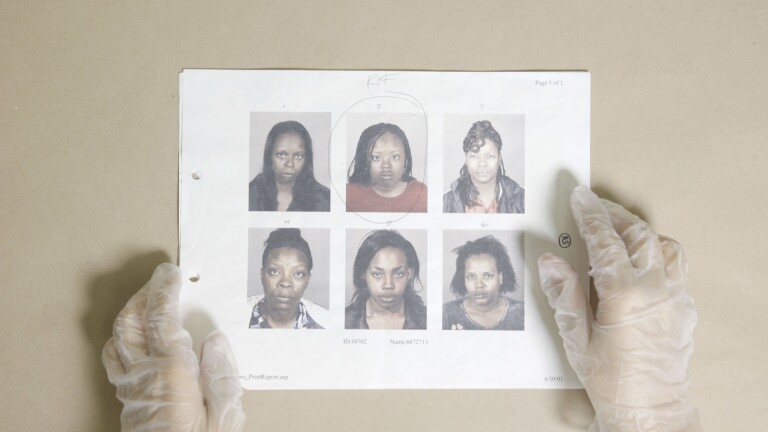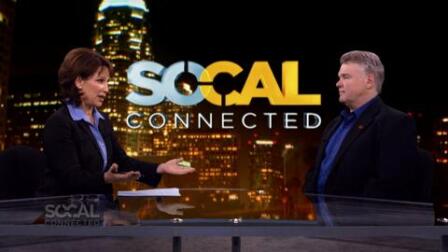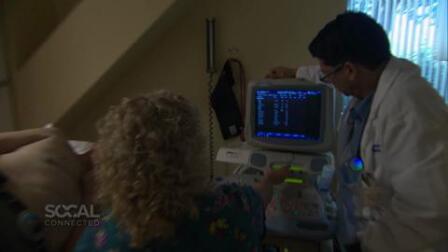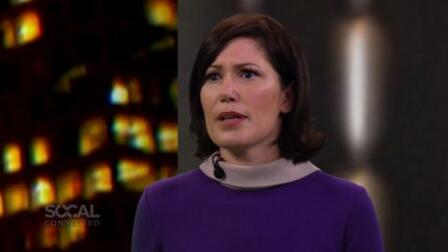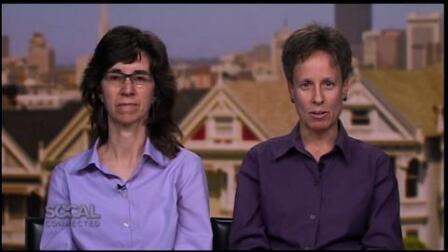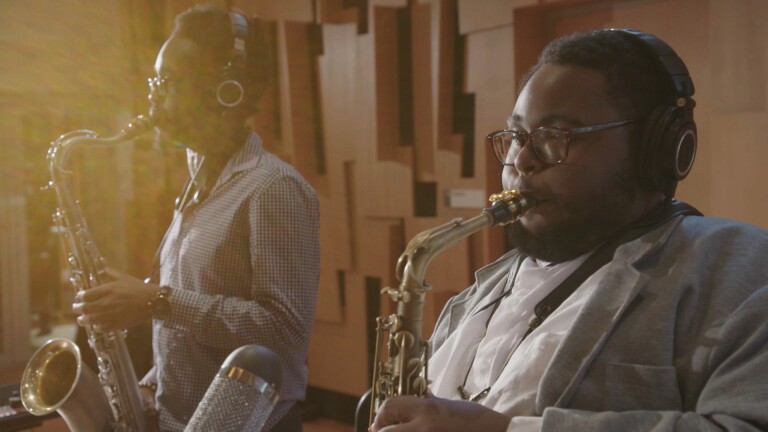A New Face of Hunger in the Land of Plenty?
It's just wrong that this would happen in the wealthiest country in the world: 50 million people aren't sure where they will get their next meal. "Hunger in America" should be an oxymoron, but it's real. One in six Americans is classified as "food insecure." Forget old stereotypes because the recession changed everything. Your friend, your neighbor, the college kid down the street, are all at risk. As Thanksgiving approaches, meet the new face of hunger.
Transcript:
Saul Garcia/Student: Being hungry can be very distracting. It can make it hard to focus while you're in class. You just think your stomach's growling. It might make noise or something. You're worried about what you're going to eat that day instead of focusing on whatever science or English class you're in. So, it can be a little distracting for the most part, yeah.
Tammy Estes: I don't know how to put into words what it's like not to have food, not to have money to buy food.
Val Zavala: A student at one of California's classiest universities eating free food stashed in an unmarked closet on campus. A married woman, once living a middle-class life, now dependent on a food bank.
Estes [at food bank]: I have carrots and corn.
Zavala: It's the new normal face of hunger. Whatever you think it used to look like, it now looks like any of us. Here at the St. Joseph Center food pantry in Venice, there's been a 30 percent increase in people needing food since the economy tanked.
Valecia Adams: I think we'd be surprised to see folks like ourselves as a result of lost jobs, health problems, lost 401(k)'s, homes. And for many people, they've had to visit food pantries and rely on food pantries for the very first time, ever.
Zavala: People like Tammy Estes.
Estes: I hate to sound pitiful, but we really, really need it.
Zavala: And people like Mila Alves, one of hundreds of UCLA students who count on what's behind this unmarked door in the student activities center. In the tiny room, there's a refrigerator, some plastic stacking shelves and a metal pantry holding food that's free for the taking.
Alvez: I got some vegetables, and I got some noodles, and definitely, I will eat it.
Zavala: There's no paperwork to fill out. No questions asked, which is why Saul Garcia says the closet works so well for financially struggling students.
Garcia: It's like a safety net, sort of. You don't have to worry about, "I'm not gonna eat today." But the fact that it's there makes you feel more comfortable. Makes you feel more safe. Makes you feel like you belong here.
Dwain Duran/Student: For a lot of students, the food closet, I would definitely say, is the difference between staying in school and dropping out.
Zavala: Dwain Duran is one of several students running the food closet.
Duran: So I'm on my way from UCLA to the Westside Food Bank in Santa Monica. They've got some goodies for us.
Zavala: Once a week, Dwain or other volunteers pick up donations especially chosen by the Westside Food Bank with students in mind.
Genevieve Riutort: For some of these students, this is the only meal that they get all day, so we want to make sure we're providing a lot of good, hearty food. Things that, you know, come in pop-top containers because we know students aren't walking around with can openers.
Zavala: Then there's fruits and veggies. The recent hookup with the food bank has given UCLA a food closet first, a bumper crop of fresh food.
Riutort: See? We've even got a sign on it. "For UCLA food pantry only." Why don't you grab the cart?
Zavala: The Westside Food Bank generally gives to large, non-profit pantries. UCLA is the only university it services, with Dwain doing today's heavy lifting.
Duran [to Riutort]: These apples and oranges will go quick at the closet.
Riutort: You know what? Hold on. I've got some more oranges over here. Do you want to grab a couple of other boxes?
Duran: Can we?
Riutort: Absolutely! If they're gonna get eaten, I'd rather see them go.
Duran: Thank you so much!
Riutort: Next time you come back you let me know how long it lasts.
Duran [to Riutort]: Absolutely.
Duran: My mom was a single mom raising me. My dad would pay child support. Both of them weren't making very much money to raise a kid. So my mom received assistance -- food stamps, WIC, welfare.
I know what it's like to come from a place of, you know, very little. That food we brought in today, it will last a day, maybe two days, tops. Yeah, you take one look at the school, you'd never imagine that there's hungry students, but there are. Some students eat once a day. Some students barely eat anything a day. I don't think anybody ever wants to admit that they're hungry, that they can't afford to feed themselves. It sucks, you know? There are people out there who do way more for other people. This is the least I could do, the least anybody could do.
T. Estes: We had a houseful of furniture, we had comfortable beds, and we bought clothes, and had cable TV and satellite and electronics and computers and everything people have nowadays and just overnight it was gone.
Zavala: Tammy and Jim Estes lived a good life near Jackson, Mississippi. Jim has degrees in applied science and worked as a machinist. Tammy did well too, as a floral designer and housekeeper of high-end homes. Their own home was on a wooded, one-acre lot. But Jim's company downsized in 2010 and he was laid off. He searched all over the state and even in nearby states for another job, but there was nothing.
T. Estes: I guess I had a nervous breakdown, really, in a way, a mini one.
Zavala: Jim lived in California back in the 80s, so he came here looking for work, but still no luck. The couple used up their savings and 401(k) and ended up living in their car, the car Tammy now uses to drive to the St. Joseph food pantry, where she's allowed to get groceries once a week.
T. Estes: Most of the time, I have to ride the bus, but today I got lucky. It's quite a treat. My friend Pam gave me $5 for gas. It takes a lot longer if I take the bus, and then I have to walk with the groceries a good ways, but lucky today, I get to drive.
Zavala: Clients get to choose anything on the shelves, but with specific limits.
T. Estes: This shelf, you get one, and I'm gonna take spaghetti sauce because I'm going to make spaghetti sauce tonight for dinner and then, this shelf, you can take one and it's usually an assortment of things. And I'm gonna take the baked beans.
Pears for pear salad. We get two from here, and these are the veggies -- carrots, peas, corn, green beans. And I'm gonna take the carrots and the corn. I'm gonna take the peanut butter. That's great for us because it's a lot of protein, and my husband's really thin. If we have enough money that I can buy chicken or beef, I don't have to buy anything to go with that.
There's been times, though, that I've made rice, and we've just sat and ate rice and butter. We've got plenty of rice. It's too bad that you have to become homeless to have empathy for it. All my life I've worked, and I've never had nothing -- never not gotten a job. I've always gotten a job within a month of looking, but not here.
Zavala: Finally, a break. Jim found a machinist's job. But he can't afford the gas to drive there. Still, Tammy says he doesn't mind.
T. Estes: He makes everything look easy. He makes everything appear like, "It's no big deal. I'll just ride the bike to work and back." And he comes home and he's happy about it.
Zavala: The job allowed the couple to move out of the car and into an apartment.
Jim Estes: I take my job seriously. I try not to ever miss or anything because I'm appreciative of having work. That's always been my philosophy with work. I give it my all. So yeah, it felt very good to get back.
Zavala: The biggest downside is that they'll probably lose the Mississippi house to foreclosure, and Tammy still can't find work. But, with all of the losses, comes some gains.
T. Estes: I walk away with this in the knowledge that I'm a lot richer than I would be if I'd come out here and become a movie star and made tons of money.
J. Estes: She knows everything about me, inside and out, the good times and the bad times, and she's still here, loving me, cooking for me. That's what I love, that she loves me. We're coming up on 17 years in December, and I love her more now than ever. More today than yesterday.
J. Estes [to Tammy]: Thank you, baby. Looks delicious!

